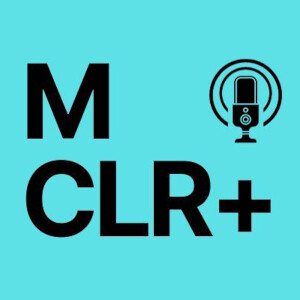
Saturday Sep 14, 2024
Between Modern Debtors’ Prison & Modern Peonage: Economic & Poverty Sanctions in Global Perspective
This is Part 1 of a two-part international & interdisciplinary workshop exploring economic discrimination in criminal justice systems around the world.
Criminal justice systems the world over are run through with economic discrimination: from the pre-trial stage (bail, and cash bail in particular) to the trial or bargaining stage (from a lack or scarcity of public defender services to fees for available public defenders, along with various other fees, charges, and hidden taxes) to the sanction stage (fines, more fees, surcharges, restitution, etc.). What’s more, each time an economic sanction isn’t paid, further economic—or non-economic—sanctions are triggered, including imprisonment and a panoply of “collateral” sanctions such as ineligibility for or loss of drivers’ and occupational licenses and public services.
The result is the systemic criminalization of poverty across the entire criminal justice process—wholly apart from the long-familiar roster of individual criminal offenses punishing poverty explicitly or implicitly (vagrancy, loitering, etc.) which has traditionally attracted the lion’s share of judicial and scholarly attention.
The phenomenon of criminal justice systems operating as modern debtors’ prisons cuts across countries and legal systems in the Global South and North. In countries from India to Germany, prison–literally–is imposed as punishment for failing to pay a fine. The practice of using economic penalties as a source of government revenue is also widespread. The Kenyan judiciary finances itself partially through court fees. In the United States, local governments enrich themselves through a net of punitive economic sanctions so dense and wide that many ensnared in it—and notably those living from paycheck to paycheck and, disproportionately, racialized individuals—find it impossible to escape. In effect, they live in a state of perpetual penal peonage that resembles less a modern debtors’ prison (whose occupants, some two centuries ago, enjoyed enough public empathy to result in its demise) and more a form of modern slavery.
► To stay informed about upcoming MCLR+ events, publications, and projects, please sign up for the MCLR+ mailing list and check the MCLR+ website [https://crimlrev.net]; to receive notifications about new video content, subscribe to our YouTube channel. The workshop proceedings will appear in a special issue of the Modern Criminal Law Review [https://crimlrev.net]. For a collection of supplemental materials, please consult MCLR+ Resources “Economic & Poverty Sanctions.” [https://crimlrev.net/mclr-resources-2/]
Participants include:
- Gustavo Beade, Universidad Austral de Chile, Law
- Morten Boe, Max-Planck-Institute for the Study of Crime, Security & Law, Freiburg, Germany
- Sarai Chisala-Tempelhoff, Gender and Justice Unit, Malawi
- Patricia Faraldo Cabana, University of A Coruña, Spain, Law Jean Galbraith, University of Pennsylvania Law School
- Mao-hong Lin, National Taipei University, Taiwan, Criminology
- Chikondi M. Mandala, Gender and Justice Unit, Malawi
- Abhinav Sekhri, Advocate, Delhi High Court & Independent Scholar, New Delhi
- Robert Stewart, University of Maryland, Criminology
- Brieanna Watters, University of Minnesota, Sociology
Part 1: September 13, 2024 @ 12pm (EDT)
- Morten Boe, Welcome and Introduction 0:00
- Gustavo Beade, “Debtor’s Prison in Latin America: Fines, Imprisonment, and Community Services as Punishment” 2:56
- Morten Boe, “Interrelations of Debt and Guilt in Criminal Law: Reconsidering a Nietzschean Narrative in the Context of Late Capitalism” 29:33
- Jean Galbraith, “Tracking Poverty Penalties Around the Globe: Challenges and Opportunities” 51:37
- Robert Stewart & Brieanna Watters, “Settler Colonialism and Financial Extraction/Predation” 1:17:04
No comments yet. Be the first to say something!